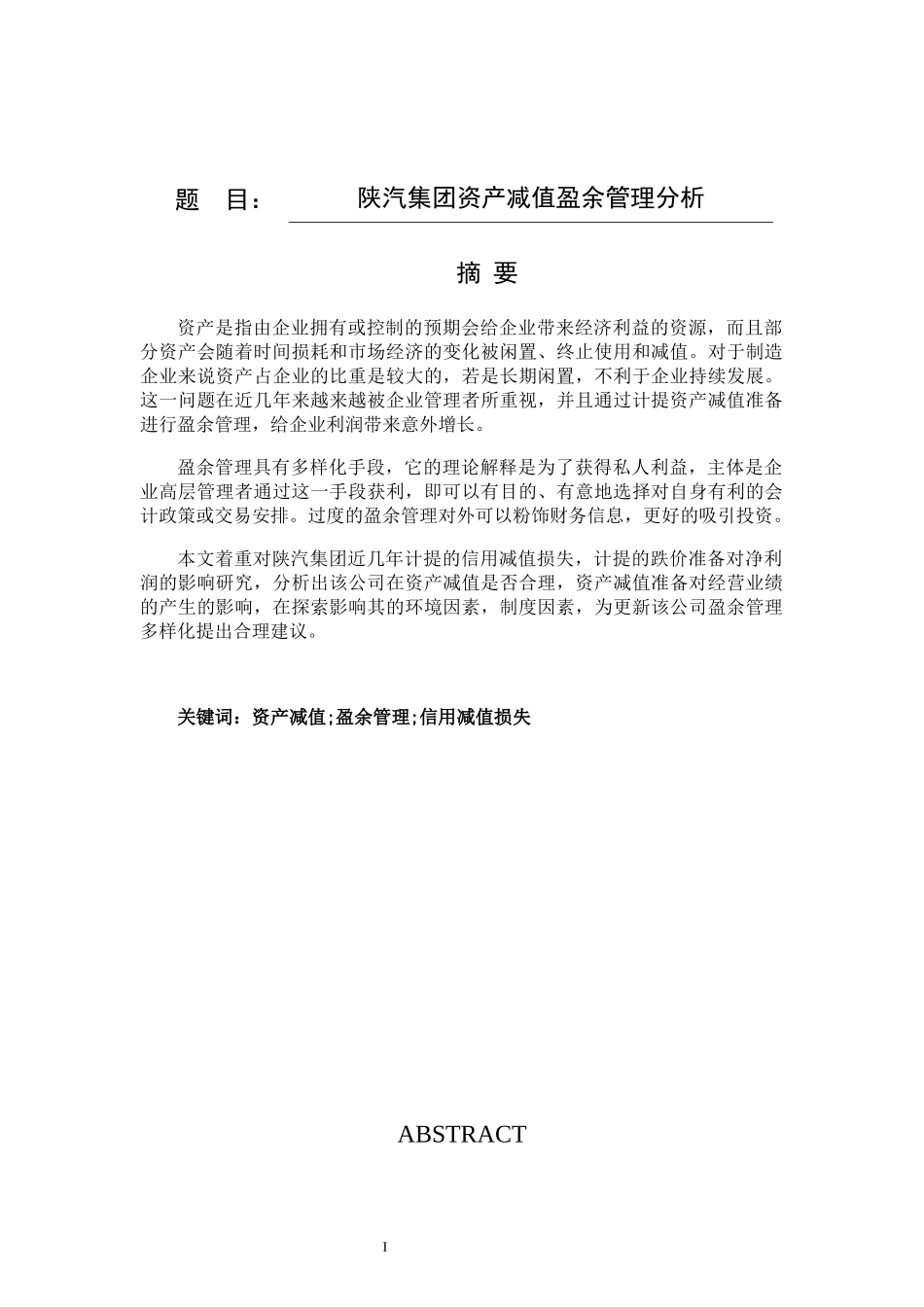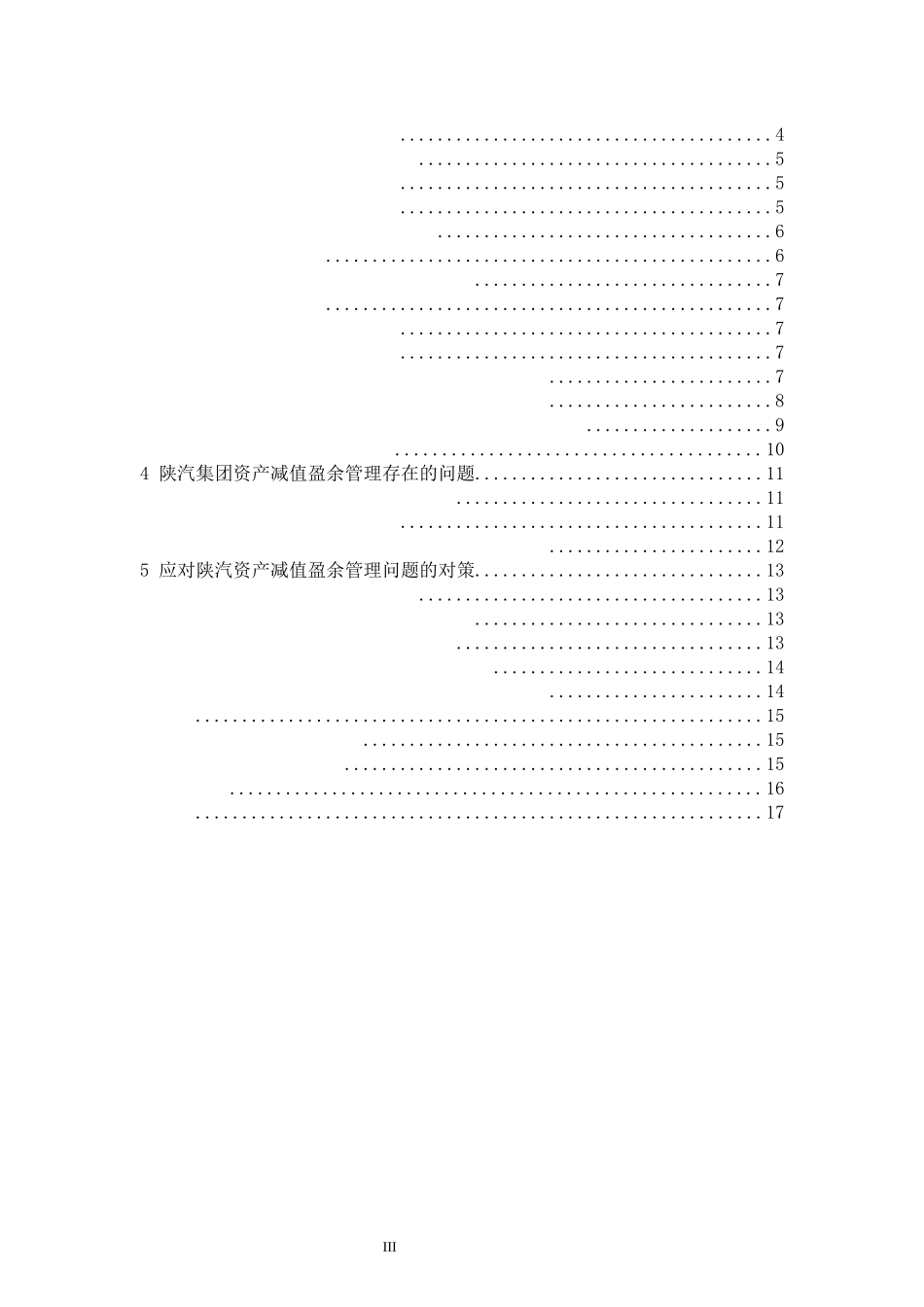I题 目:陕汽集团资产减值盈余管理分析摘 要资产是指由企业拥有或控制的预期会给企业带来经济利益的资源,而且部分资产会随着时间损耗和市场经济的变化被闲置、终止使用和减值。对于制造企业来说资产占企业的比重是较大的,若是长期闲置,不利于企业持续发展。这一问题在近几年来越来越被企业管理者所重视,并且通过计提资产减值准备进行盈余管理,给企业利润带来意外增长。盈余管理具有多样化手段,它的理论解释是为了获得私人利益,主体是企业高层管理者通过这一手段获利,即可以有目的、有意地选择对自身有利的会计政策或交易安排。过度的盈余管理对外可以粉饰财务信息,更好的吸引投资。本文着重对陕汽集团近几年计提的信用减值损失,计提的跌价准备对净利润的影响研究,分析出该公司在资产减值是否合理,资产减值准备对经营业绩的产生的影响,在探索影响其的环境因素,制度因素,为更新该公司盈余管理多样化提出合理建议。关键词:资产减值;盈余管理;信用减值损失ABSTRACTIIAssets are the resources owned or controlled by the enterprise which are expected to bring economic benefits to the enterprise, and some of the assets will be idle, terminated and devalued as time goes by and the market economy changes. For Enterprises, assets account for a larger proportion of enterprises, if long-term idle, not conducive to sustainable development of enterprises. In recent years, this problem has been valued by enterprise managers, and through the provision of impairment of assets for enterprises to carry out a kind of earnings management, to bring an unexpected increase in corporate profits.Earnings Management has a variety of means, its theoretical explanation is to obtain private interests, the main body is the enterprise senior managers through this means to profit, that is, they can choose accounting policies or trading arrangements that are beneficial to them intentionally. Excessive earnings management external can whitewash financial information, better attract investment. Internally,...


